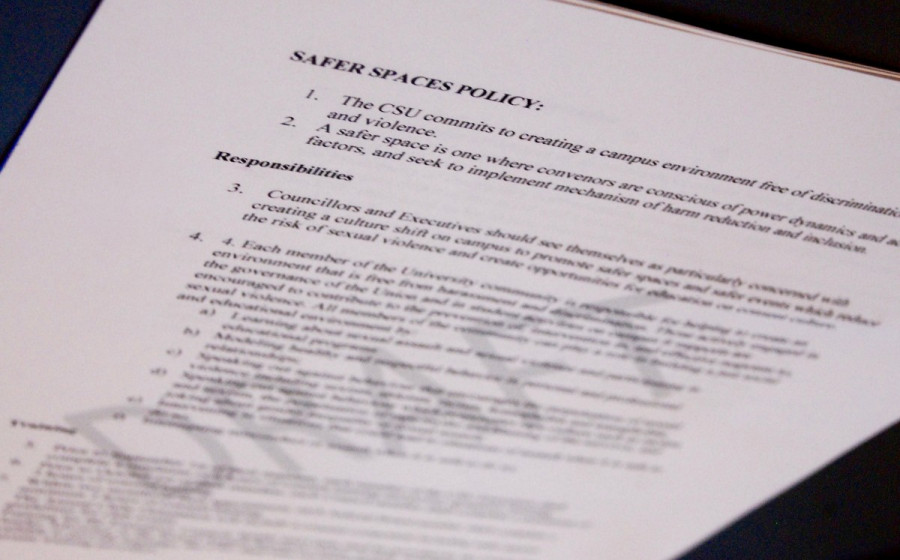CSU Drafts Safer Spaces Policy
Union Taking Measures To Combat Rape Culture On Campus
The Concordia Student Union has officially drafted a Safer Spaces Policy.
The CSU consulted with the Centre for Gender Advocacy, a Concordia university working group, as well as the McGill sexual assault policy working group. They also consulted numerous online resources to help draft the policy.
They began writing it in January, and research began in summer 2015.
“What’s really effective is having this discussion at all different levels of the university,” said Marion Miller, the Fine Arts Senator elect. “I think if there’s an ongoing desire to address this at every level, that’s where the effective change can take place.”
The policy will provide consent and power dynamics training to executives.
Consent training would also be provided to councillors, the Judicial Board, the Senate, and Clubs. It will be provided by the Centre for Gender Advocacy or the Sexual Assault Research Centre. An alternative trainer will be suggested to the CSU if neither of those bodies are available.
It outlines a set of responsibilities for the CSU to promote a safer space on campus.
“Those actively engaged in the governance of the Union and in student activities on campus it supports are encouraged to contribute to the prevention of, intervention in, and effective response to, sexual violence,” the Responsibilities section of the policy reads.
It will also implement a Safer Events Planning Guide called ANNEX X. This portion of the policy outlines a Safer Spaces Commitment, which would mandate “an organizer or resources person” to explain the commitment and read out a written statement before an event. The statement could alternatively be posted within the space.
ANNEX X outlines accessibility considerations for the CSU and other organizers to consider before planning an event. The policy also suggests the use of promotion material that “must be inclusive, free of discriminatory content and must not promote a culture of excessive alcohol consumption.”
Guidelines will also be provided for events involving alcohol.
“It’s kind of like setting up a template that people can adapt to what they’re doing. It’s part of the goal,” Miller explained.
The CSU commits to following the policy, and would suggest to other event organizers that they adapt to it as well, she said.
When drafting the policy, the Centre For Gender Advocacy emphasized not making it “out of reach for people,” Miller continued.
“So making something that can actually be implemented and used in a way that’s not too complicated, that people can adapt to their situation,” she said. “We encourage folks, in the policy, to use it as a jump-off point, but to adapt it to what they’re doing.”
The creation of the policy was not in response to anything specific, and is separate from the Safer Spaces Policy being drafted for Reggie’s.
The CSU will be seeking community input over the course of the next month for any changes that the policy may still need—they plan on adopting and integrating it into their standing regulations at a council meeting on May 11.
“I really hope that within the next year, and in the future, the policy committee will be actively updating this policy as situations evolve,” Miller said.
The policy committee has also been considering whether the CSU should adopt critical positions with recommendations and suggestions regarding the university’s policy.
“I’m glad we have a first iteration of [the policy], and it will need continual work. I think that’s important, in the way we continually work on destroying rape culture,” she said.
Read the full policy here.



_600_375_90_s_c1.jpg)
_600_375_90_s_c1.jpg)
2_600_375_90_s_c1.jpg)